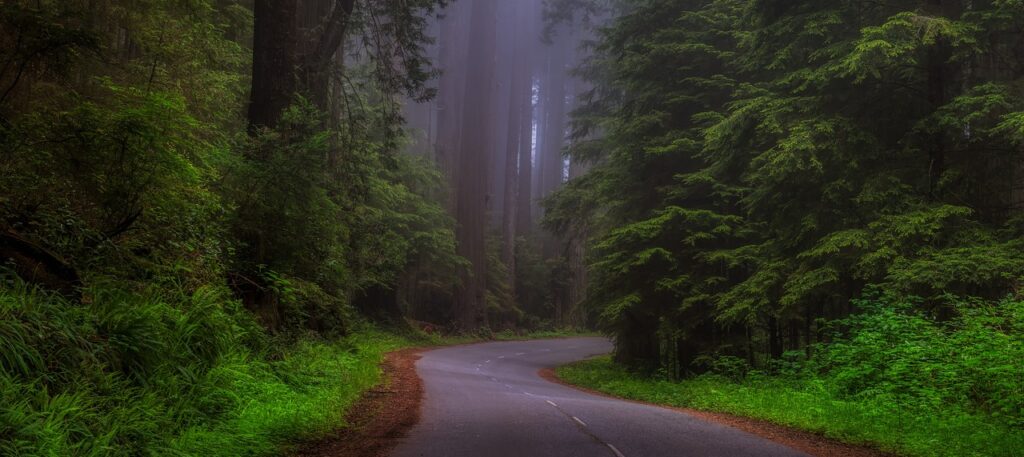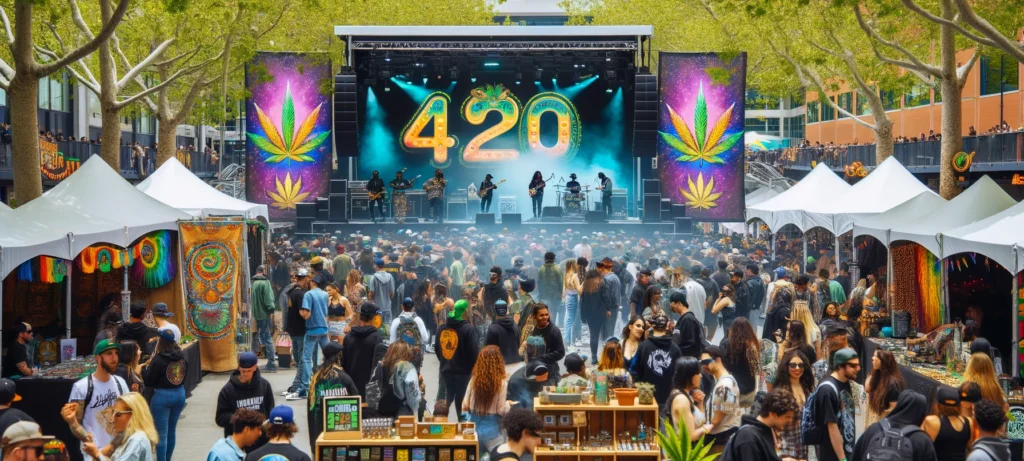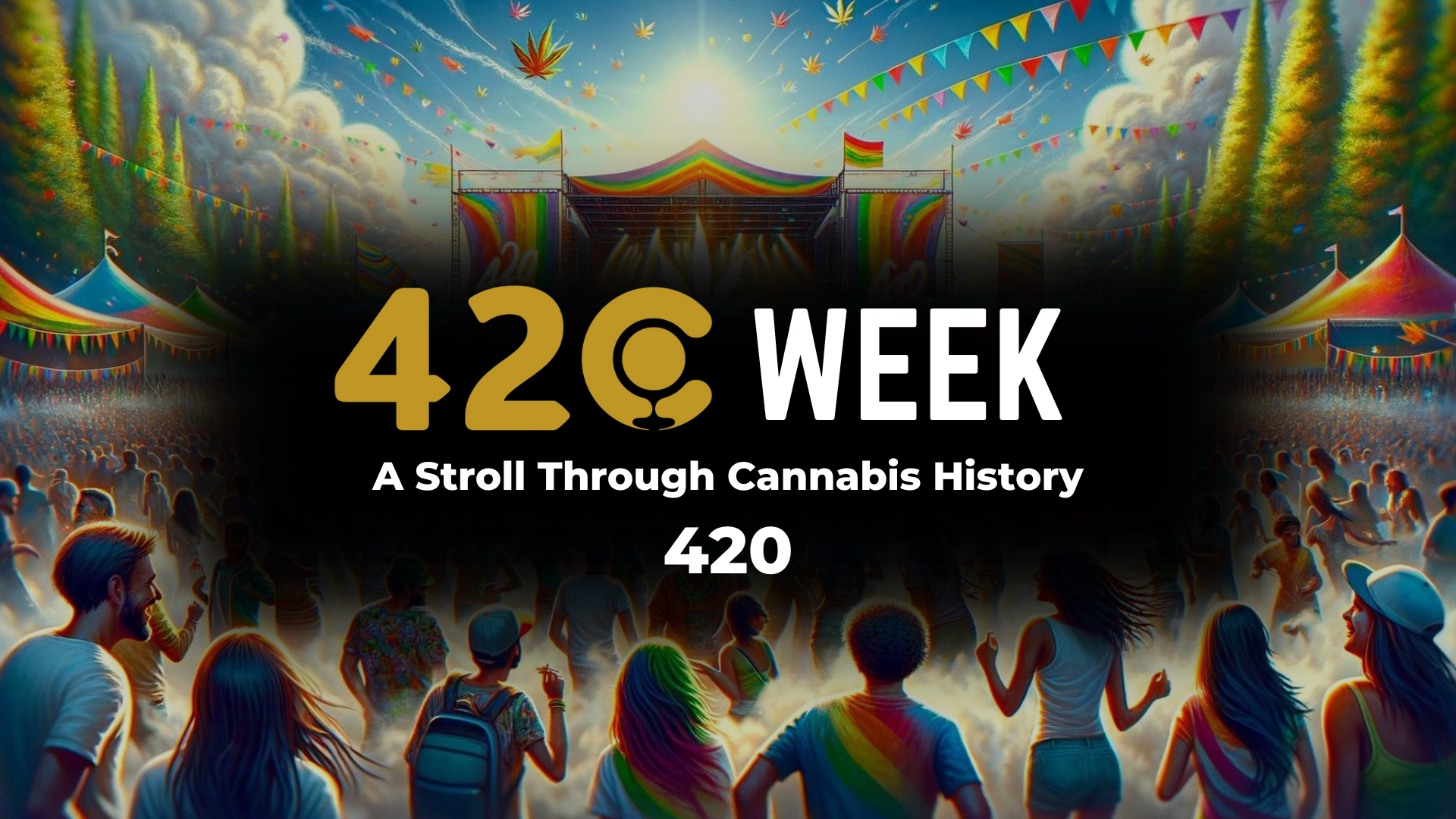Every year on April 20th, the air in various parts of the world carries a distinct aroma; it’s the smell of cannabis being celebrated by its enthusiasts. But how did 420 actually start, and where?
The Waldos and 420
One leading theory is that what started as an insider joke among a group of Californian teenagers has bloomed into a full-fledged cultural phenomenon recognized across the globe. The story begins in the early 1970s in San Rafael, California, with a group of high school students known as the Waldos. The nickname originated from their chosen hang-out spot, a wall outside their school.
The Waldos coined “4:20” as their code for initiating cannabis searches, meeting at this specific time to hunt for an abandoned cannabis crop they had heard rumors about. Eventually it would evolve to just “420,” as a reference to cannabis itself. But it would turn out The Waldos had some pretty influential friends that would help turn 420 into a cultural phenomenon.

The Waldos had direct connections to the Grateful Dead, an influential rock band known for its eclectic style and psychedelic music that resonated with the era’s counterculture. As the Dead toured, the term “420” traveled with them, whispered from one follower to another, gradually embedding itself in the broader cannabis culture.
Members of The Waldos had close relationships with members of the band, from spending time at their rehearsal spaces to watching their homes when they went on tour.
From Underground to Mainstream
The journey of 4/20 from an underground celebration to mainstream acknowledgment involves the media’s role in its propagation. Publications like High Times, a magazine that became a significant cannabis culture staple, began to reference 4/20 in the 1990s.
They covered stories and theories about its origins, which introduced the term to a broader audience. As media outlets picked up the thread, 4/20 gained traction, morphing from a code among friends into a scheduled time for millions to light up.
The arrival of the internet and social media would turbocharge this evolution. Platforms such as Facebook, Twitter, and Instagram became stages for users to share their plans and experiences related to 4/20, transforming what was a fragmented celebration into coordinated global events. Cities around the world now see gatherings, festivals, and concerts on April 20th, turning a once-secret code into a public declaration of cannabis culture.
420 Myths and Misconceptions
Despite its (mostly agreed upon) origins, the term “420” has been shrouded in myths and urban legends. One of the most persistent misconceptions is that 420 was the police code for marijuana smoking in progress. Another speculated that there were 420 active chemicals in cannabis, adding a scientific twist to the tale.
Music also played its part in the mythology, with some fans linking 420 to Bob Dylan’s “Rainy Day Women #12 & 35” because of the lyric “Everybody must get stoned” and the fact that 12 multiplied by 35 equals 420. These stories, while inventive, certainly stretch the possibilities of how the holiday could have originated.
Modern Celebrations and The Commercialization of 4/20

Today, 4/20 serves not just as a day for celebration but also as an opportunity for advocacy and business. As the holiday has grown, so too has its commercial appeal. Dispensaries and cannabis companies roll out promotions, discounts, and special events to attract both seasoned consumers and curious newcomers.
Cities like Denver, Colorado host day long 420 festivals with local vendors selling holiday-themed goodies and patrons consuming cannabis in public with little worry of persecution or prosecution.
The commercialization of 4/20 reflects the changing legal landscape and reduced stigma surrounding cannabis. Many businesses use the day to educate the public about cannabis, advocate for legal changes, and promote safe consumption practices.
But more importantly, it brings the cannabis community together one day a year, and brings to the forefront the mission statement that has made it possible; the legalization of cannabis.
Looking Forward: The Future of 4/20
As more countries and states move towards the legalization of cannabis, 4/20 continues to evolve from a countercultural celebration to a mainstream event, and possibly, a legitimate holiday. Advocacy remains a crucial aspect of 4/20, with activists leveraging the day to push for reforms in cannabis laws and public perception.
The future of 4/20 must continue to be recognized not only as a day of fun and enjoyment, but as a powerful symbol in the ongoing conversation about cannabis, health, and legal justice.
From its humble beginnings to its status as a global phenomenon, 420 showcases the remarkable journey of cannabis culture from the fringes to the forefront of societal awareness. As it continues to grow, the day remains a testament to the enduring and evolving relationship between society and this ancient plant.


